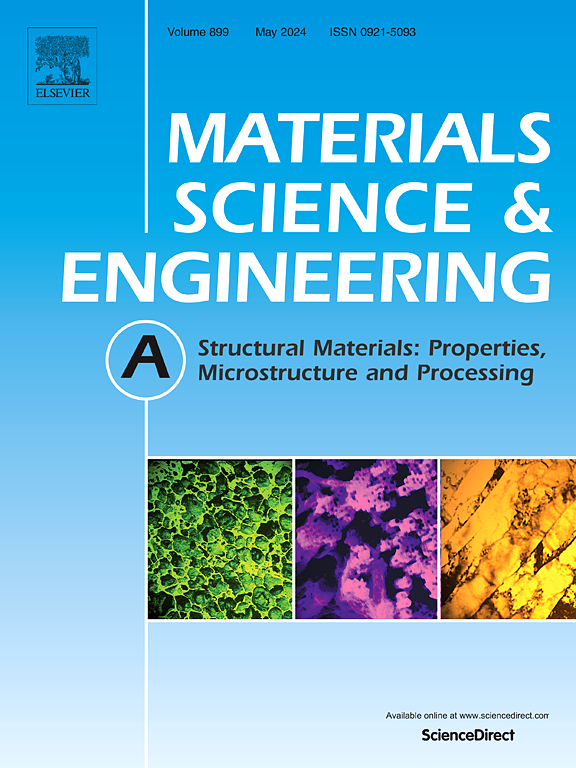激光增材制造超高强度Ti-4Cu-6Al合金
IF 7
2区 材料科学
Q1 MATERIALS SCIENCE, MULTIDISCIPLINARY
引用次数: 0
摘要
采用选择性激光熔化法制备了一种超高强度Ti-4Cu-6Al (wt.%)合金,系统地研究了选择性激光熔化和热处理合金的显微组织和力学行为。结果表明,as-SLMed试样由超细针状α′结构组成,平均间距为~ 0.07 μm。在700℃和800℃热处理1 h后,超细针状α′分解为α和Ti2Cu, Ti2Cu析出相消失,而当热处理温度提高到900℃时,形成少量的βt cu富集结构。as-SLMed试样具有1578 MPa的超高抗拉强度和1.7%的低伸长率。当热处理温度为700℃时,拉伸强度降低至1299 MPa,而拉伸伸长率几乎没有提高。当试样在800°C或900°C热处理1小时时,强度和伸长率之间达到了良好的平衡。在900°C热处理的试样表现出优异的机械性能,拉伸伸长率从1.7%显著增加到10.3%,极限拉伸强度从1578 MPa轻微下降到1254 MPa。最后,讨论了热处理过程中微观组织演变的原因及其强化机理。本文章由计算机程序翻译,如有差异,请以英文原文为准。
The fabrication of ultrahigh strength Ti-4Cu-6Al alloy using laser additive manufacturing
In this paper, we reported an ultrahigh strength Ti-4Cu-6Al (wt.%) alloy fabricated by selective laser melting (SLM), and the microstructure and mechanical behavior of as-SLMed and heat-treated alloys were systematically investigated. Findings indicate that the as-SLMed specimen consists of an ultrafine acicular α′ structure, averaging a spacing of ∼0.07 μm. The ultrafine acicular α′ decomposes into α and Ti2Cu after heat treatment at 700 °C and 800 °C for 1 h. The Ti2Cu precipitate phase became invisible, while a small number of βt Cu-enriched structure formed when the heat treatment temperature is raised to 900 °C. The as-SLMed sample exhibits an ultra-high ultimate tensile strength of 1578 MPa, while a low elongation of 1.7 %. The heat treatment temperature at 700 °C decreases the ultimate tensile strength to 1299 MPa, while it hardly improves tensile elongation. A good balance between strength and elongation is achieved when the specimens were subjected to thermal processing at 800 °C or 900 °C for 1 h. The specimen subjected to heat treatment at 900 °C demonstrated superior mechanical performance, evidenced by a notable increase in tensile elongation from 1.7 % to 10.3 % and a slight decrease in ultimate tensile strength from 1578 MPa to 1254 MPa. At last, the reasons for the microstructure evolution during heat treatments and the strengthening mechanisms in the as-prepared samples were discussed.
求助全文
通过发布文献求助,成功后即可免费获取论文全文。
去求助
来源期刊

Materials Science and Engineering: A
工程技术-材料科学:综合
CiteScore
11.50
自引率
15.60%
发文量
1811
审稿时长
31 days
期刊介绍:
Materials Science and Engineering A provides an international medium for the publication of theoretical and experimental studies related to the load-bearing capacity of materials as influenced by their basic properties, processing history, microstructure and operating environment. Appropriate submissions to Materials Science and Engineering A should include scientific and/or engineering factors which affect the microstructure - strength relationships of materials and report the changes to mechanical behavior.
 求助内容:
求助内容: 应助结果提醒方式:
应助结果提醒方式:


